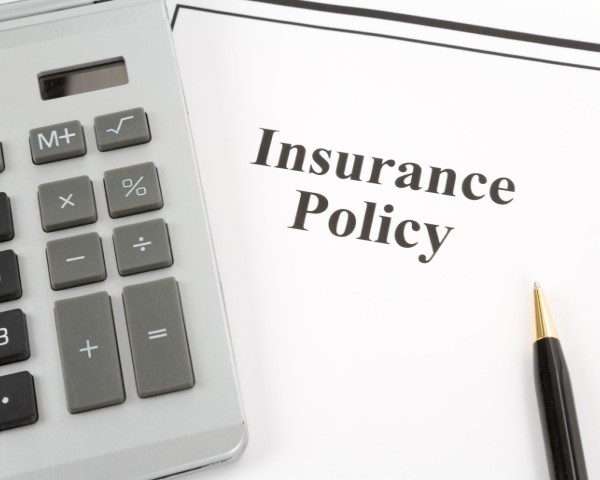
Specialty Liability Insurance
For many small businesses, general liability insurance, with its broad coverage, is sufficient to safeguard against many claims made by employees, customers, or the general public. However, depending on the type of business, its structure, and products or services offered, it may not protect fully against certain types of liability claims. To plug the gaps of a general liability insurance policy, businesses should consider adding specialized coverage for the following:
Professional Liability Insurance
For professionals such as doctors, attorneys, architects, financial advisors, and real estate agents, a general liability policy won’t protect them against claims arising from malpractice, negligence, errors, oversights or misrepresentations.
Professional liability insurance is a specialty coverage for professionals referred to in different ways depending on the profession. For example, medical practitioners need malpractice insurance and financial advisors, and real estate agents use “errors and omissions” insurance.
Examples of professional liability claims include:
- Errors and oversights in services provided
- Missed deadlines
- Failure to meet standards
- Breach of contract
- Missed deadlines
Generally, a professional liability policy will indemnify the insured against losses arising from claims made, including legal costs. Policies cost between $500 and $1,000 annually, which beats the costs of attorneys and court fees.
Directors and Officers Insurance for Private Companies
Although directors’ and officers’ insurance, often referred to as D&O coverage, is more typically associated with public companies, a growing number of astute private company owners are recognizing the benefits D&O coverage can provide for their businesses.
As the name suggests, D&O coverage is designed to protect company directors and officers against allegations made against them personally while performing their corporate duties. Like general liability insurance policies, D&O is designed to provide financial and legal protection to officers and directors who are sued individually.
While the company and its assets will be protected by a commercial general liability policy, D&O insurance protect directors, officers, and their personal assets.
Having this protection is important because more and more private firms are sued for a variety of reasons. For example, shareholders, employees (present and former), customers, suppliers, competitors, or government regulators can make allegations related to unfair business practices, failure to meet contractual obligations, regulatory violations, and just about anything else someone can think of.
Some typical reasons for private companies to be sued include:
- Breach of fiduciary duties or contacts
- Conflicts of interest
- Disclosing false or misleading information
- Financial reporting errors
- Regulatory violations
- Misuse or disclosure of trade secrets
- Mismanagement of assets
In addition to providing protection for personal assets, D&O insurance also provides money for defending a lawsuit (as well as any settlements or damages that are assessed).
The coverage can also be very helpful in recruiting directors and officers to work with your company. In fact, failing to buy D&O insurance, or not having enough coverage, can make it difficult to attract officers or directors who may be worried about exposing their personal or family assets if they agree to work with your private company.
Your insurance agent or broker can provide valuable advice about picking D&O coverage and setting the appropriate policy limit for your company, industry and risk factors.
Fidelity Bonds for Small Businesses
If your small business handles cash, or collect payments on behalf of your customers, fidelity bonds should be an important part of your company’s insurance protection.
For example, if a trusted employee steals money, items, information or other valuable assets from your business or a customer, a fidelity bond will provide protection from the financial consequences of that loss.
Fidelity bonds may be required in some customer contracts before they a client will allow your company or employees to provide services, such as a property manager who collects rents on behalf of a building owner.
The cost of a fidelity bond will vary according to several factors, such as:
- The type of work your small business conducts
- The clients you serve
- The amount of assets that may be involved
- The size of your firm
- Any previous losses.
Several types of fidelity bonds are available to small business owners:
Business services bonds provide protection for the loss of customer funds, equipment, supplies or personal belongings caused by your employee’s theft on a customer’s premises. This type of bond is typically used by contractors, businesses that provide custodial services, and other firms that need off-hours access to customer facilities.
Employee dishonesty bonds protect small businesses against financial loss resulting from employee fraud or theft, equipment, or other property owned by your small business.
Services providers may also wish to consider fidelity bonds if their employees have access to clients’ financial information, customer records or IT resources. Inappropriate access or misuse of sensitive client information are among the exposures that can be covered with a fidelity bond.
If your company handles customer assets or accesses their facilities, a fidelity bond can provide important protection against loss and peace of mind for you as the business owner.
Product liability insurance
If your business manufactures products that are sold or resold to the general public, you must have product liability insurance. There isn’t enough a business can do to ensure its products are entirely safe. With many small businesses, it takes just one lawsuit due to damage or personal harm caused by one of its products to cripple a business. That’s why product liability insurance is essential, and it needs to be explicitly tailored to the type of products you manufacture.
Vehicle insurance
If you own or lease vehicles for use in your business, they need to be fully insured to protect your business against liability in the event of an accident. The coverage must include liability protection against third-party injury, and it should consist of comprehensive coverage for protecting the vehicle (you’ll need that anyway if you’re financing or leasing the vehicles). Employees who use their own cars for business are covered by their personal insurance, except if they are delivering goods or services for a fee.

 How AI Can Help Your Business
How AI Can Help Your Business